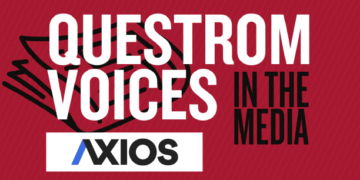November 2025
WalletHub recently published an interview featuring Mark Williams, Master Lecturer of Finance, who explained that secured starter credit cards, those requiring an upfront deposit, are generally safer than unsecured ones because they limit spending and prevent debt buildup.
These cards are ideal for individuals with little or no credit history looking to build a FICO score and eventually move to traditional credit cards. Banks offer starter cards because they’re profitable and help attract new customers, while users benefit most by paying balances in full and keeping credit utilization below 20–25%. Since the 2008 Great Recession, starter cards have grown in popularity, often helping users establish credit within 12–18 months.
“Before applying for a starter credit card, it is important to do your research and find a card issuer who offers the most favorable terms as measured by interest rate, fees charged, and amount of credit offered. Remember the goal of having a starter credit card (secured or unsecured) is to build up not lessen your personal credit score,” Williams adds.
Overall, starter credit cards generally build credit faster than starter loans, but consumers should compare terms carefully and use them responsibly to strengthen their financial standing.




















